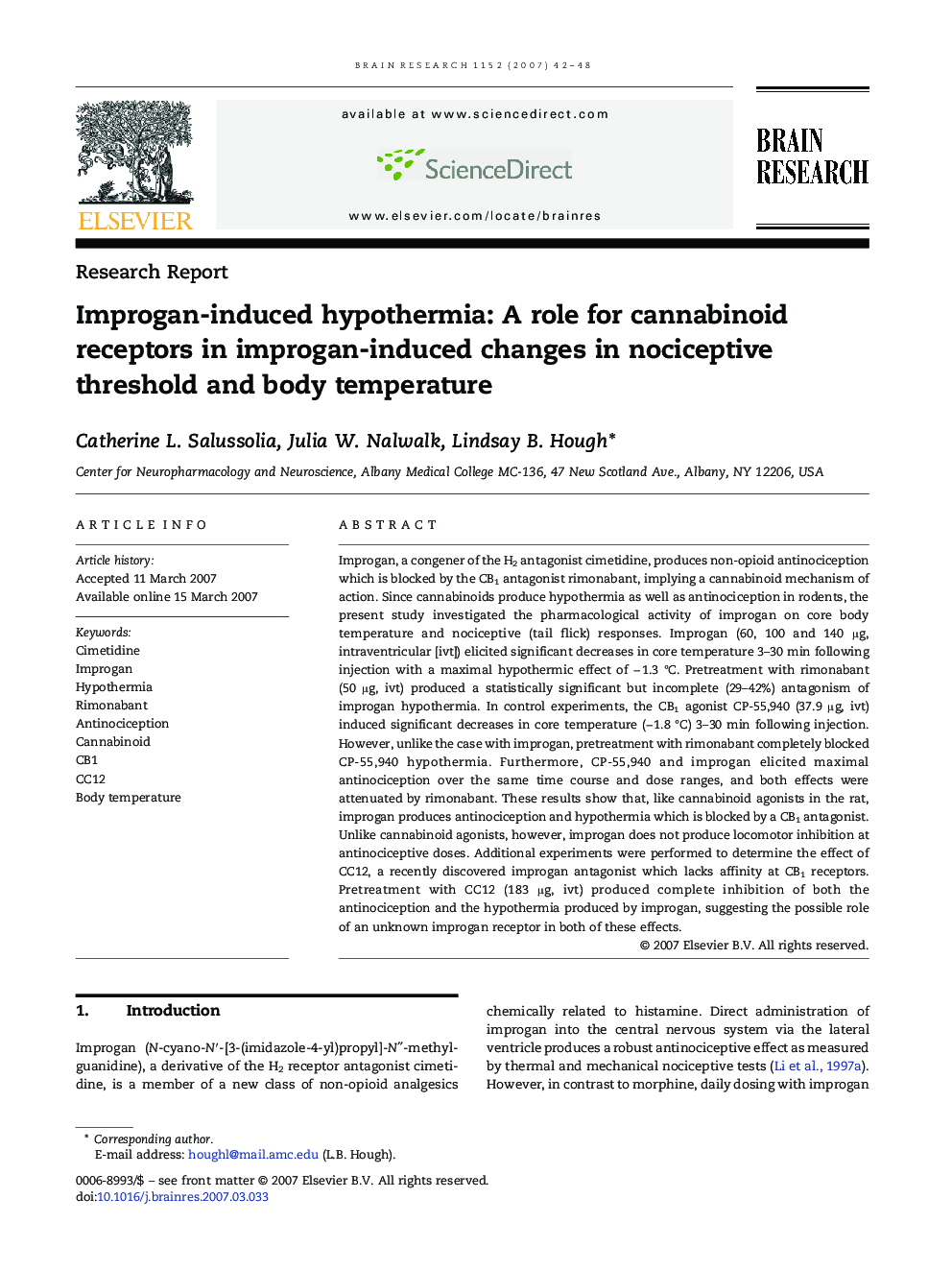| Article ID | Journal | Published Year | Pages | File Type |
|---|---|---|---|---|
| 4330986 | Brain Research | 2007 | 7 Pages |
Improgan, a congener of the H2 antagonist cimetidine, produces non-opioid antinociception which is blocked by the CB1 antagonist rimonabant, implying a cannabinoid mechanism of action. Since cannabinoids produce hypothermia as well as antinociception in rodents, the present study investigated the pharmacological activity of improgan on core body temperature and nociceptive (tail flick) responses. Improgan (60, 100 and 140 μg, intraventricular [ivt]) elicited significant decreases in core temperature 3–30 min following injection with a maximal hypothermic effect of − 1.3 °C. Pretreatment with rimonabant (50 μg, ivt) produced a statistically significant but incomplete (29–42%) antagonism of improgan hypothermia. In control experiments, the CB1 agonist CP-55,940 (37.9 μg, ivt) induced significant decreases in core temperature (− 1.8 °C) 3–30 min following injection. However, unlike the case with improgan, pretreatment with rimonabant completely blocked CP-55,940 hypothermia. Furthermore, CP-55,940 and improgan elicited maximal antinociception over the same time course and dose ranges, and both effects were attenuated by rimonabant. These results show that, like cannabinoid agonists in the rat, improgan produces antinociception and hypothermia which is blocked by a CB1 antagonist. Unlike cannabinoid agonists, however, improgan does not produce locomotor inhibition at antinociceptive doses. Additional experiments were performed to determine the effect of CC12, a recently discovered improgan antagonist which lacks affinity at CB1 receptors. Pretreatment with CC12 (183 μg, ivt) produced complete inhibition of both the antinociception and the hypothermia produced by improgan, suggesting the possible role of an unknown improgan receptor in both of these effects.
